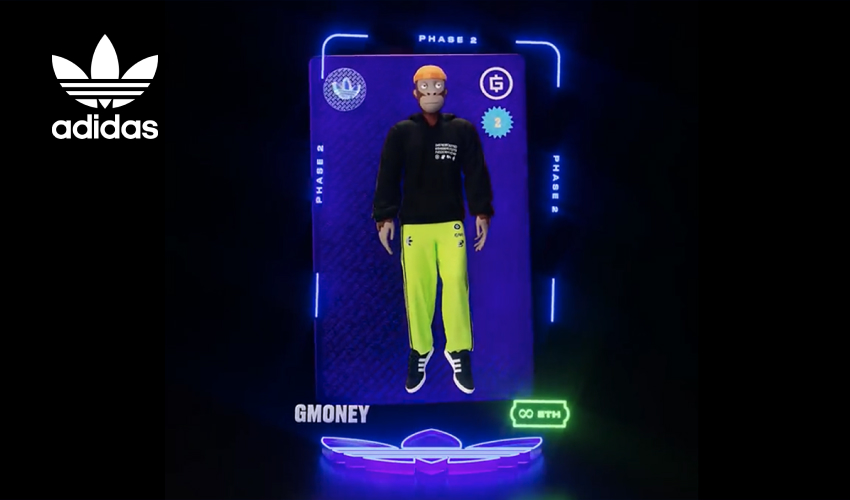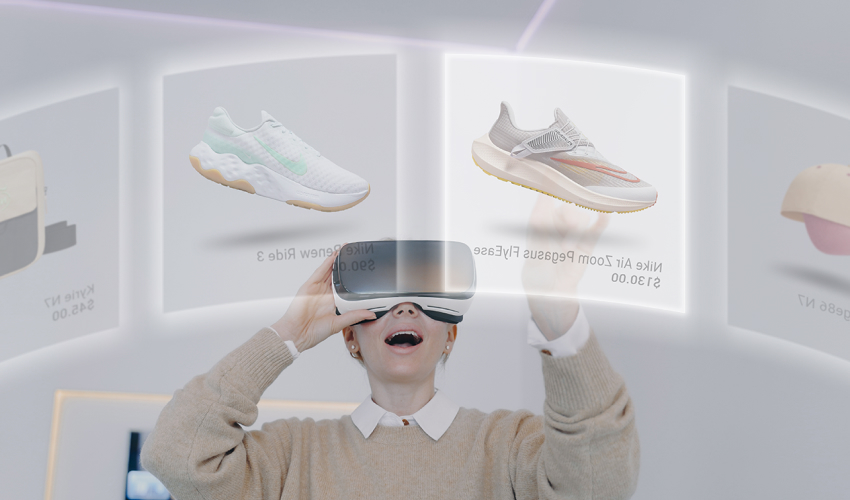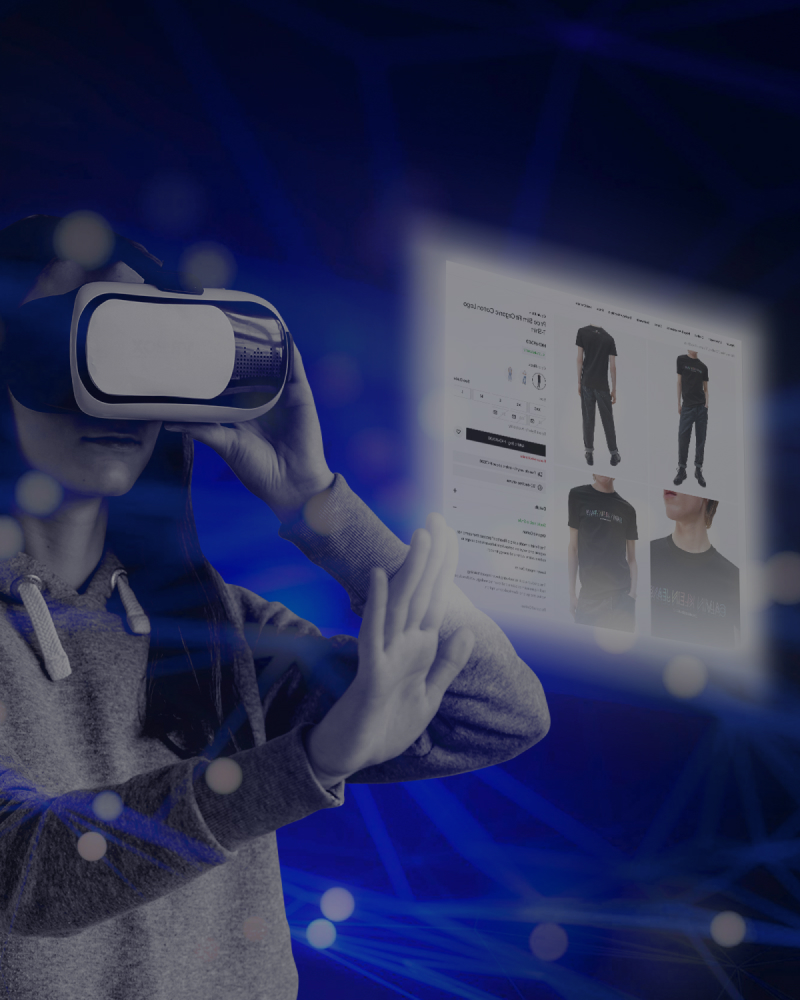Technology, marketing and commerce are inextricably linked. We’ve witnessed astonishing changes in platforms and ways of doing business since the turn of the millenium, as digital rockets forward on its exponential trajectory. Now, the buzzword on everyone’s lips is the metaverse.
Despite the current challenges in defining exactly what the metaverse is – with the occasional eye-rolling at a mention of the topic – we all know it’s coming and everyone wants to be prepared in some way. Broadly, we can describe the metaverse as a convergence of our physical and digital lives across multiple platforms, involving AR, VR, blockchain technology, NFTs and gaming. It is seen as the next evolution of the internet, with the term ‘web3’ being coined as a more engaging and decentralised experience that allows digital ownership, as opposed to the current framework dominated by companies that provide services in exchange for your personal data.
The metaverse promises more immersive experiences and convenience. Not only was this inevitable, but the pandemic has also proven it necessary. As consumers spend more time online, whether out of necessity or a draw to novel and exciting social experiences, there is a tremendous opportunity for brands to engage audiences in entirely new and creative ways while pushing internal capabilities and brand innovation in new directions.
But what exactly does this mean for ecommerce and how should we prepare? We don’t know exactly how the metaverse will materialise, but we know it’s the next quantum leap in improving the customer experience. It will radically change how products and services are made and delivered, allowing us to transcend physical and spatial limits to create unique virtual experiences that could not happen otherwise. At such early stages of discovery and development – even for organisations like Meta – we should consider this an experimentation phase; learning and testing to stay relevant and poised to innovate.
Immersive, helpful experiences
Whether you provide products or services, emerging technology will offer captivating new ways to engage with your audience and provide a superior customer experience. It’s important to stay abreast of these developments and consider creative solutions to consumers’ pain points.
There are already many real-world applications and examples, as brands experiment and begin to build the preliminary fabric of the metaverse. Several online glasses retailers, such as Warby Parker, have already launched a “virtual try-on” feature that uses augmented reality (AR) allowing customers to preview the fit and style on their face, using the iPhone front-facing camera. For fashion products like clothes and accessories, as well as make up and household items, this feature provides a wonderfully convenient way to view the products in situ and make a purchase decision without having to leave your home.
Qatar Airways has also recently stepped into the metaverse, with the world’s first “MetaHuman” cabin crew in their QVerse virtual reality (VR) experience. The website allows users to virtually tour and navigate the Premium Check-in area at Hamad International Airport, as well as the cabin interior of the airline’s aircraft. The digital interactive customer experience was developed using Epic Games’ Unreal Engine, the world’s most advanced real-time 3D creation tool, and MetaHuman Creator, a cloud-based app for creating high-fidelity digital humans. As AR and VR technology improves, brands will be able to offer seamless, personalised experiences that revolutionise the retail customer experience, helping to reduce return rates for products and strengthen engagement overall.

Source: Photo by Daniil Lobachev / CoinView App on Unsplash
A new world order
Beyond individual apps and filters for specific products, entirely new virtual worlds are being developed, too. Platforms like The Sandbox, Decentraland and Roblox are all building their own incarnations of the metaverse for people to gather, create, explore and play in, complete with virtual marketplaces. While the visual design is relatively primitive and mass adoption is a way off, these platforms are the frontier of metaverse world building and provide valuable learning and PR opportunities. They provide a sense of place and belonging, fundamental to the human experience for brands to connect with.
Marking its 100th anniversary under the creative direction of Alessandro Michele, Gucci created ‘The Gucci Garden’ experience within Roblox to build brand awareness among young customers. This was an immersive multimedia experience, exploring and celebrating the brand’s creative vision with digital avatars that transform into mannequins, absorbing elements of the exhibition and turning themselves into unique digital artworks. Visitors could also choose from a boutique of virtual limited-edition items for their avatars in the form of NFTs (non-fungible tokens), generating revenue for both Gucci and Roblox.
Indeed, NFTs will play a key role in development of the metaverse by providing verifiable proof of ownership on the blockchain, for a fair and transparent digital economy. These tokens can simply be considered as digital collectibles with their own value, however brands are already harnessing the power of the developing technology with remarkable results.
The iconic sportswear fashion brand, Adidas, launched their metaverse strategy in collaboration with Bored Ape Yacht Club, gmoney & PUNKS Comic at the end of 2021. Their Into the Metaverse NFT is a digital collectible that grants holders access to virtual land experiences and exclusive physical merchandise at no additional cost. The collection sold out almost immediately and generated over US$23 million in revenue. Nike also recently launched an NFT collection of customisable sneakers in collaboration with RTFKT, called CryptoKicks, with customers paying anything from US$4,000 to over six figures for some pairs.

Source: adidas Originals / Twitter
These types of consumers love collectibles; the feeling of having ‘exclusive’ access to unique products and being part of a cool community, or the brand’s ecosystem, and NFTs provide the perfect digital means of capturing this opportunity in the metaverse. Who are you targeting and what kinds of things will they be interested in doing in this kind of environment? Maybe your brand could benefit from a virtual store or NFT collection to connect with them and deliver products or services in a new, engaging way.
Strategic innovation and adaptation

Source: Stock photos by Vecteezy
As with most new ventures, diving into the metaverse will require significant investment in technology and skilled employees, but it will be worth it. Brands should assess the skills they need, identify which they already have and which they must acquire, and appoint someone to lead the development and execution of a coherent strategy.
Interoperability is also a key consideration. For the metaverse to become a seamless extension of their existing retail offering, brands will need to prepare their digital stores for different kinds of media, devices and virtual formats. The technology exists today with headless architectures like Adobe Commerce and Salesforce Commerce Cloud helping to pave the way. This will need to continually evolve, of course, as more and more platforms begin to innovate and interact in different ways.
Evolving omnichannel experiences
The metaverse shouldn’t be considered as a replacement for the physical world, but as an added layer of engagement that enhances real-world experiences. We are early and the emerging space is extremely complex – even quite disconcerting at times – but it’s important to act now to stay relevant. Start small. It doesn’t have to be a groundbreaking activation, but focus on the customer experience and experiment.
eWave has helped brands with their most ambitious commerce projects for over a decade, investing heavily in omnichannel strategy and digital technology in order to drive engagement and remain competitive. We’ve bridged the physical and digital experience for leading B2B, B2C and D2C brands around the world by providing seamless omnichannel experiences, while laying the foundations for future growth and opportunities that may exist within the metaverse. With a focus on experiences and reimagining commerce, we’re committed to shaping the future and helping clients get ahead of the competition.
If you’re already feeling lost in the metaverse, eWave can help illuminate and innovate. Together, we can redefine what’s possible by building immersive and valuable experiences, developing your digital commerce ecosystem for rapid growth.
About the Author
A leading technologist in the commerce space backed by a history of brand transformations and business results, Fatima is known industry-wide for her technical ability and future-focused entrepreneurship.
https://www.linkedin.com/in/fatimasaid/

